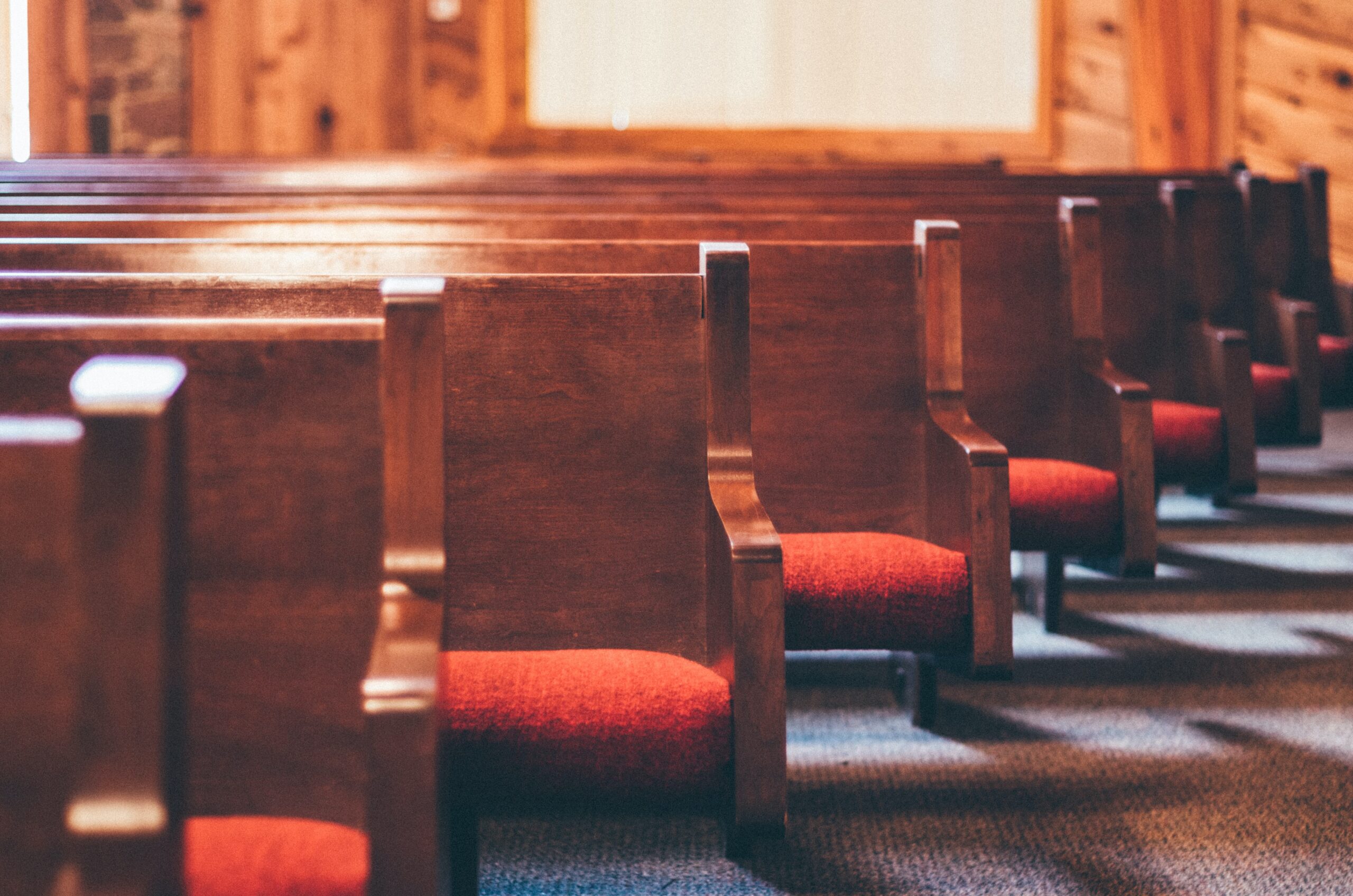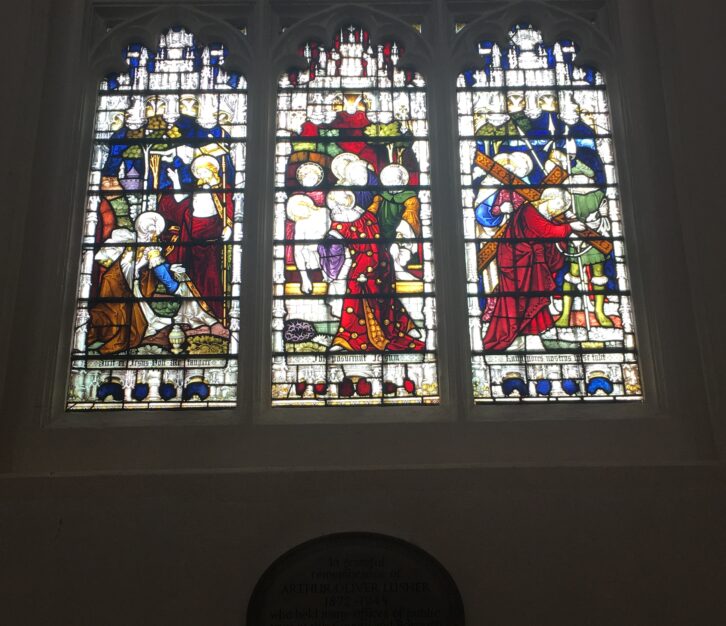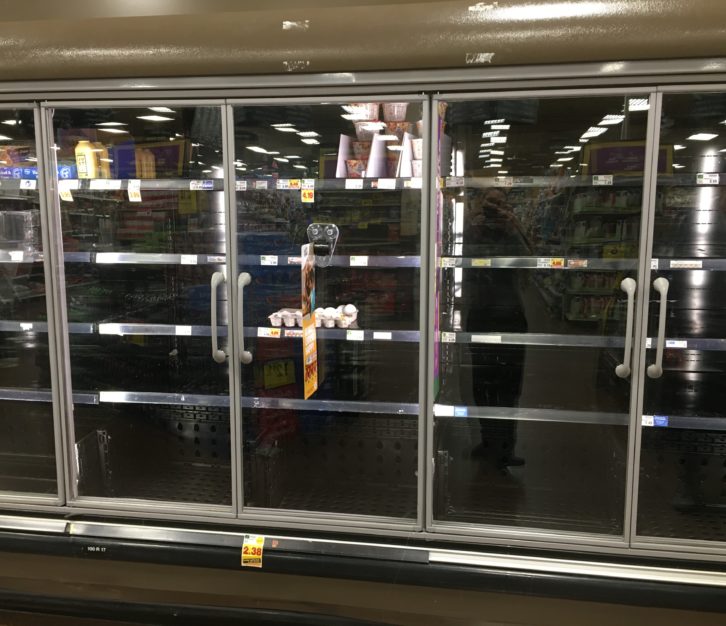“Well, I just hope Jesus comes back soon.”
That’s the Christian “escape-hatch” comment I’ve heard more and more lately—as the pandemic goes on longer, the election gets closer, and all of our days feel a bit more uncertain and out of control. If that one doesn’t work to catapult away from fear and discomfort, a quick assertion that “God is in control” is a good back up. I do my best not to remind others that God was in control during the hundreds of years during of Hebrew slavery in Egypt as well as all those times they were conquered in the Old Testament. We’ll usually just wind up back at the Second Coming, anyway.
It just hasn’t sat well with me how quickly a sticky, messy, difficult conversation will land there.
Whether it’s a discussion of politics, race, poverty, or any other kind of injustice, at some point—usually a more heated and difficult one—one of those involved will throw up their proverbial hands and find their only solution in Jesus’ return to earth. Instead of debating what policies to support or organizations rallying around solutions, the discussion simply dissipates into silence and resignation.
But where does that leave us for the next few minutes and dozens of years before the clouds part?
It isn’t surprising to me that this sentiment usually comes from older generations of evangelicals because of the theology American Christianity has provided them. It’s not that they’re thoughtless or heartless—it’s simply the theological and historical water they’ve swam in for years.
End-times theology has had huge shifts in America —from the optimistic idea that the world would get better and better up until Jesus comes back (postmillennial) to the belief things would get much worse, but Christians would be safely taken away and then returned after the clean-up (premillennial—thanks, Left Behind series). Not only that, but everyone from the Jehovah’s Witnesses, Pat Robertson, Jerry Falwell, a handful of cult leaders, and a whole slew of others espoused predictions of the end of times nearly every year from the 1960s onward. Even my family had our own box of canned foods and batteries to accompany our Y2K disappointment when the lights didn’t even flicker after the 1999 count down.
The chant of Christian culture for decades was, “Watch out—Jesus is just around the corner, so you better be ready.” This idea, though, doesn’t just make some among us worry if they’ll be raptured from their cars or kitchens. It actually spills over into our roles as citizens.
Michael Gerson, writing in 2018 about evangelicals, described this phenomenon and the problem it creates for enacting change:
The difficulty with this approach to public life—other than its insanely pessimistic depiction of our flawed but wonderful country—is that it trivializes and undercuts the entire political enterprise. Politics in a democracy is essentially anti-apocalyptic, premised on the idea that an active citizenry is capable of improving the nation. But if we’re already mere minutes from the midnight hour, then what is the point? The normal avenues of political reform are useless. No amount of negotiation or compromise is going to matter much compared with the Second Coming.
If we resign ourselves to the idea that problems can’t be solved without divine intervention, we’ll simply choose to do nothing.
Why should we try to reign in our capitalistic systems gone wrong if they’re only moments from being wiped out? What’s the point of caring for the air, the ground, or the earth at all if God’s just minutes from giving us a brand new one? Why should we seek to hear, understand, cooperate, and work alongside those who disagree with us if we’re just ready for Jesus to trumpet and prove us right?
Sure, this idea of the imminent coming of Christ can be biblically supported—but the Bible also attests to the social problems it causes. In the tiny books of 1 and 2 Thessalonians, there’s evidence some in their church were a little too anxious about Jesus’ return, believing it would be any minute or even that it had already happened. Paul corrects their theology, but for most of the letters, he reminds them how to live today. Live, work, fight laziness, pray, and encourage one another, he tells them.
The second reason this socially ambivalent philosophy keeps on keeping on among Christians has just as much of a stronghold as the apocalyptic view:social problems are a result of individual sin problems and any deviation from that solution is the “social gospel.” This view also reinforces the end times view that the world will simply get worse and worse and that’s how we know we’re nearing the end. The biggest problem with that is that it’s painfully half right biblically, but fully a result of our Christian history in America.
It’s a fools errand to attempt to summarize a hundred years of church history in a paragraph, but here are the main ideas: In the 1900’s, there were two big, and often competing, Christian “camps.” One was the “social gospel” which came to rise as a response to the Industrial Age and its abuses, and was aligned with more liberal interpretations of scripture. In contrast, Fundamentalism focused on “fundamentals” of faith, including a focus on individual, personal salvation, Jesus’ imminent second coming, and a more historical and literal treatment of scripture. Current evangelicalism is basically rebranded Fundamentalism. For those who wanted to maintain a strong view of scripture as valuable and inerrant as Fundamentalists did, this seemed to require a rejection of the other side—the social gospel and it’s focus on social problems like labor abuses and increasing poverty in urban areas.
It’s safe to say that most in the “evangelical voting block” isn’t aware of this historical dichotomy, but this is one reason it feels like we have two Christianities co-exisiting in the United States. I’ve heard both sides complain that they can’t understand how they’re reading the same Bible. It’s because of this history of conflict between Christians concerned with social problems and those suspicious that this will detract from the main message of individual salvation, there is a lingering and persistent idea that we have to choose a side; you can improve the world or you can trust scripture and preach salvation alone.
While history argues for that division, the Bible doesn’t.
Genesis, the first book of scripture—as well as Daniel, most pointedly—undercuts that resignation to the eventual end of time as today’s solution. Do, build, and create, Genesis says. That’s the original command to look around and do good work where you are. It didn’t change after it all fell apart—it just became more difficult. Thorns and pain, but the work remains.
Even more clearly, we find this message still to the exiled Israelites. They wondered, “What do we do while we’re exiled, God? Do we simply bide our time and wait until you take us back to our own homeland?” In what had to feel like an incredibly surprising reversal, God said, “no.” Bless the place you’re in, the book of Daniel will later say, specifically to a people in a foreign and non-God fearing land.
If you’re familiar with the stories of Daniel and his friends from Sunday school (or Veggie Tales) you might have missed the bigger context those stories take place in. These young men were captives of the invading government being trained as officials to serve the ver same government that kidnapped them and ransacked their people. In this way, Daniel and his friends testified to how good and strong and true their God was.
God didn’t tell them to sit on their hands until their Messiah came.
In her book “The Liturgy of Politics,” Kaitlyn Schiess encourages us to live and pray and vote with this “now and future” mentality, writing,
Instead of viewing this life, including our political participation during it, as simply biding our time until our true citizenship is fully realized, we should view our engagement in this age as a glimpse and foretaste of that future. The work we do now will be redeemed, not extinguished. Our current engagements anticipate our future engagements, transcending the limitations of earthly political work and providing opportunities for us to witness to a larger project of human flourishing.
Sure, with this idea, there might be a risk of transferring our trust from Jesus’ work—now and later—to the work of democracy to perfect the world. However, I believe every gift—including the gift of democracy, or what’s currently left of it—comes with the risk of misuse. That doesn’t mean we refuse or return it. Instead, we handle it with care by fully engaging our minds and our work.
There is work set before us and no amount of wishing or praying it away will cause it to disappear. But, we can pray the prayer Jesus himself gave his disciples—the twelve and us now—who are desperate to know how to pray. It’s the first prayer I ever committed to memory and all we need to do is dwell on the first ask, “Your kingdom come and your will be done on earth as it is in heaven.” Right now. Not because the trumpets boom or because the clouds moved like curtains before our eyes, but because we decided the work of the upside-down kingdom—not the empire among us—is worth our effort, with all its toil and birth pangs on this side of eternity, to see it today.







